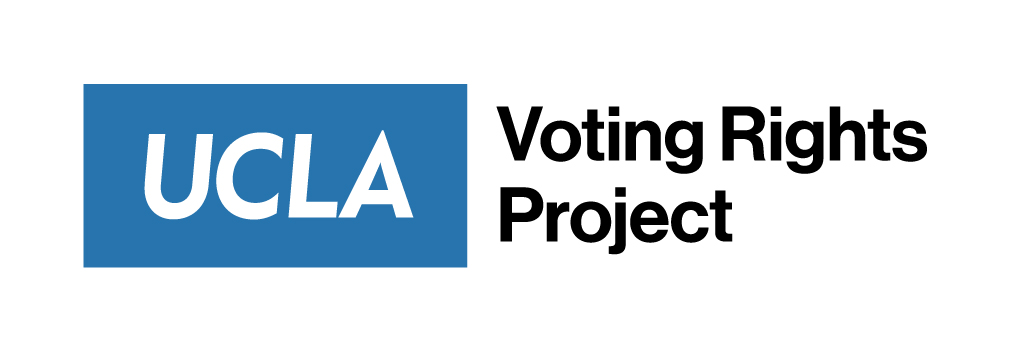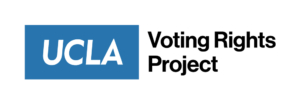Matt Barreto
VRP Faculty Director, Professor of Political Science & Chicana/o Studies
Dr. Matt A. Barreto is a professor of political science and Chicana/o studies at UCLA and the Faculty Director of the UCLA Voting Rights Project (VRP). Barreto came to UCLA in 2015 after serving as a professor of political science at the University of Washington, Seattle, and director of the University of Washington Voting Rights Center, at the UW School of Law. He holds a Ph.D. in political science from UC Irvine, under the guidance of Dr. Bernard Grofman. At the UCLA VRP, Dr. Barreto works closely with the data science team and social science students in researching and implementing data analysis and statistical models of voting patterns, redistricting, district performance analysis, and more.
His research examines the political participation of racial and ethnic minorities in the U.S., and he has taught courses on racial and ethnic politics, the voting rights policy, elections, statistics, political methodology, and American politics. Barreto has published more than 80 peer-reviewed research articles, chapters and books that examine voting behavior, voting rights, and racial politics in America. His books include “Ethnic Cues: The Role of Shared Ethnicity in Latino Political Behavior” (University of Michigan Press), “Change They Can’t Believe In: The Tea Party and Reactionary Politics in America” (Princeton University Press), and “Latino America: How America’s Most Dynamic Population Is Poised to Transform the Politics of the Nation” (Public Affairs).
Building on his research on racial and ethnic voting patterns, Barreto has conducted extensive research on voting rights, and has been an expert witness in dozens of Voting Rights Act lawsuits and has advised multiple states, counties and cities on redistricting and VRA compliance. In 2011, Barreto was retained as the lead expert consultant for the State of California’s Citizen Redistricting Commission, and was specifically asked to advise the Commission on Section 2 and Section 5 of the Federal Voting Rights Act and conduct research on polarized voting and vote dilution. In 2021 Barreto was hired as an expert consultant to advise on redistricting for the States of Washington, Pennsylvania, and Maryland, as well as numerous cities and counties across the country.
In 2020 Barreto worked with Prof. Loren Collingwood to provide expert research on vote dilution in East Ramapo Central School District. In the lawsuit they used their eiCompare software package (GitHub | R CRAN) to implement surname matching and geocoding of the voter rolls, called Bayesian Improved Surname Geocoding (BISG), to more accurately identify the racial/ethnic demographics of voters. Ultimately the court ruled that Barreto and Collingwood had correctly applied BISG and more precisely estimated vote dilution, ruling in favor of the NAACP and NYCLU plaintiffs. It was the first ever application of BISG in a voting rights trial, a technique that had previously been widely used in published social science.
Beyond his work studying racially polarized voting and redistricting, Barreto has published social science articles and served as an expert witness on the topic of voter ID laws. He served as an expert witness in the 2012 Pennsylvania voter identification lawsuit Applewhite v. Commonwealth of Pennsylvania, where his research with Prof. Gabriel Sanchez proved crucial to the voter ID law being blocked. Barreto and Sanchez also provided an expert report in a lawsuit challenging the impact of the Wisconsin voter ID law on minority voters, and in 2012 the Wisconsin law was also put on hold. In 2014 Barreto and Sanchez teamed up again to provide an expert report and testify in Veasey v. Perry in a challenge to the Texas voter ID law, and a Federal Court struck down the Texas ID law as unconstitutional, in part basing her decision on the evidence presented by Barreto and Sanchez. In 2016-17, Barreto and Sanchez implemented research and an expert report challenging the voter ID law in North Dakota finding the law would prevent thousands of Native Americans from casting a ballot. A Federal Court blocked the North Dakota ID law twice. Most recently, they offered an expert report challenging the voter ID law in North Carolina which a federal court struck down in December 2019.

